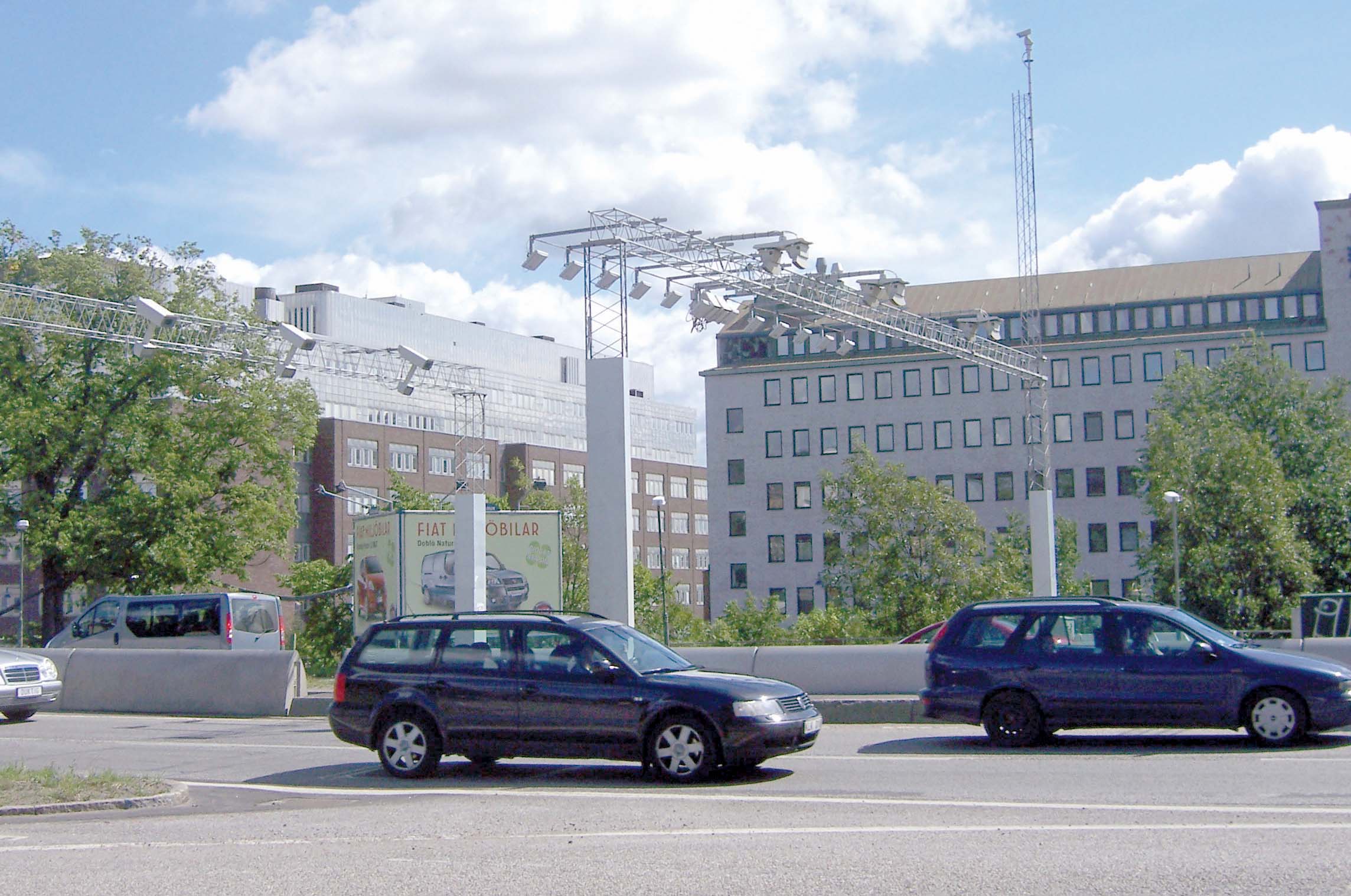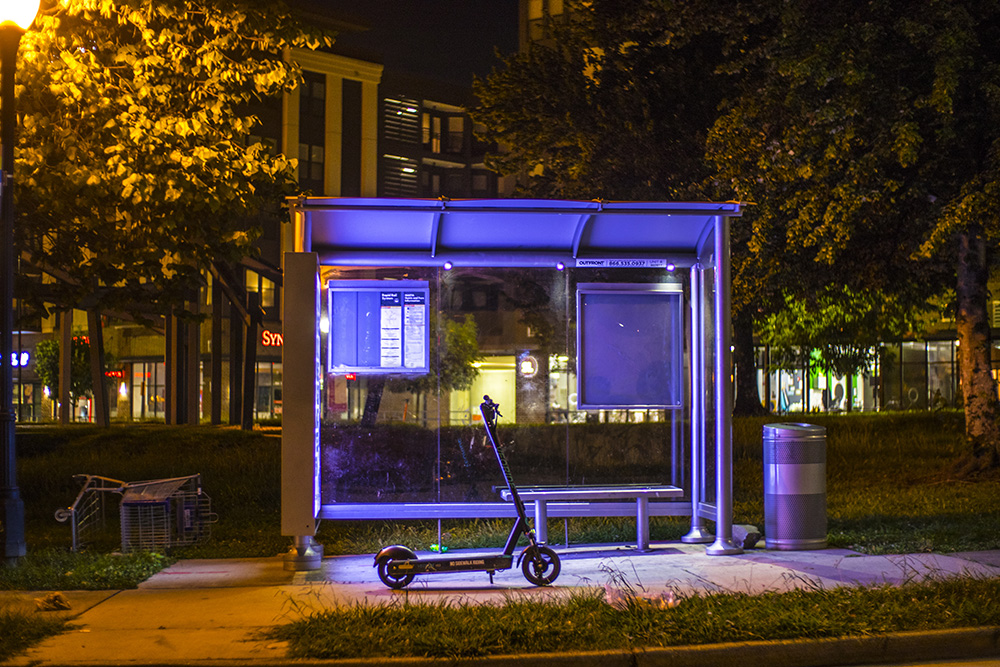A study of the German local public passenger transport market, initiated by Göppel Bus and carried out by Consultatio Venture, revealed unsurprising results that would apply to just about any operation in this sector throughout the world: the pressure on costs and capacity peaks pose the greatest problems for local public passenger transport operations.

Göppel Bus has also introduced a newer and smaller trailer bus, the Go4city which is available in 10.5m and 12m formats
A study of the German local public passenger transport market, initiated by 1061 Göppel Bus and carried out by Consultatio Venture, revealed unsurprising results that would apply to just about any operation in this sector throughout the world: the pressure on costs and capacity peaks pose the greatest problems for local public passenger transport operations.
In order to handle these peaks, either excess capacity is operated throughout the day, or a relief bus is put on in busy times. In either case, the resulting costs are not only a huge burden on the economic performance of public transport operations, but they also have environmental and other drawbacks.
Although not the only manufacturer of trailer buses in Europe, Göppel Bus has more units in service. And the company points out that the benefits of trailer buses are wider than local public transport. For instance, they can be used by private operators, at airports to match capacities to plane sizes in airside operations; for park-andride operations or for use during temporary passenger peaks such as football matches, concerts, trade exhibitions, fairs and so on.
The trailer bus is an alternative to high-capacity articulated, or bendy, buses and Göppel Bus would argue that they are a significantly more cost-efficient and flexible option. For instance, different passenger capacities may be flexibly covered by simply coupling up and uncoupling the trailers and matching them with different tractor vehicle lengths. As a result of their ability to adapt to passenger capacity needs at any moment, excess capacities are avoided and the use of relief buses becomes unnecessary.
From an investment viewpoint, the low lifecycle costs for the trailer are an important benefit: acquisition costs are only around 65 per cent of those for the tractor vehicle, maintenance requirements are much lower and they provide double the service life of the towing vehicle.
Incorporated in the trailer bus system is a drive off lock to prevent the vehicle moving away if the coupling process has not been properly completed.
The final process in completing the play-free and damped trailer coupling process is drawing across the flexible barrier between the two units to prevent anyone from entering that space.
The safety system developed by Göppel Bus provides fully automated, operating modeindependent video monitoring of the trailer by the driver while the wide-angle mirror system, in combination with the cameras, provides full coverage of the space next to, between and behind the train. Also incorporated is two-way integrated communications capability between the driver's position and the trailer interior.
In order to handle these peaks, either excess capacity is operated throughout the day, or a relief bus is put on in busy times. In either case, the resulting costs are not only a huge burden on the economic performance of public transport operations, but they also have environmental and other drawbacks.
Although not the only manufacturer of trailer buses in Europe, Göppel Bus has more units in service. And the company points out that the benefits of trailer buses are wider than local public transport. For instance, they can be used by private operators, at airports to match capacities to plane sizes in airside operations; for park-andride operations or for use during temporary passenger peaks such as football matches, concerts, trade exhibitions, fairs and so on.
The trailer bus is an alternative to high-capacity articulated, or bendy, buses and Göppel Bus would argue that they are a significantly more cost-efficient and flexible option. For instance, different passenger capacities may be flexibly covered by simply coupling up and uncoupling the trailers and matching them with different tractor vehicle lengths. As a result of their ability to adapt to passenger capacity needs at any moment, excess capacities are avoided and the use of relief buses becomes unnecessary.
From an investment viewpoint, the low lifecycle costs for the trailer are an important benefit: acquisition costs are only around 65 per cent of those for the tractor vehicle, maintenance requirements are much lower and they provide double the service life of the towing vehicle.
Safety considerations
Göppel bus trains have not only proven themselves in regular service over many years, but they have been subjected to extensive independent testing. Both the towing vehicle and the trailer are equipped with both ABS and ESP, while integrated EBS (Electro-pneumatic Brake System) permits an improved brake response and hence shortens braking distances. ECAS (Electronically Controlled Air Suspension) is also standard and ensures a consistent ride height, whatever the loading.Incorporated in the trailer bus system is a drive off lock to prevent the vehicle moving away if the coupling process has not been properly completed.
The final process in completing the play-free and damped trailer coupling process is drawing across the flexible barrier between the two units to prevent anyone from entering that space.
The safety system developed by Göppel Bus provides fully automated, operating modeindependent video monitoring of the trailer by the driver while the wide-angle mirror system, in combination with the cameras, provides full coverage of the space next to, between and behind the train. Also incorporated is two-way integrated communications capability between the driver's position and the trailer interior.












